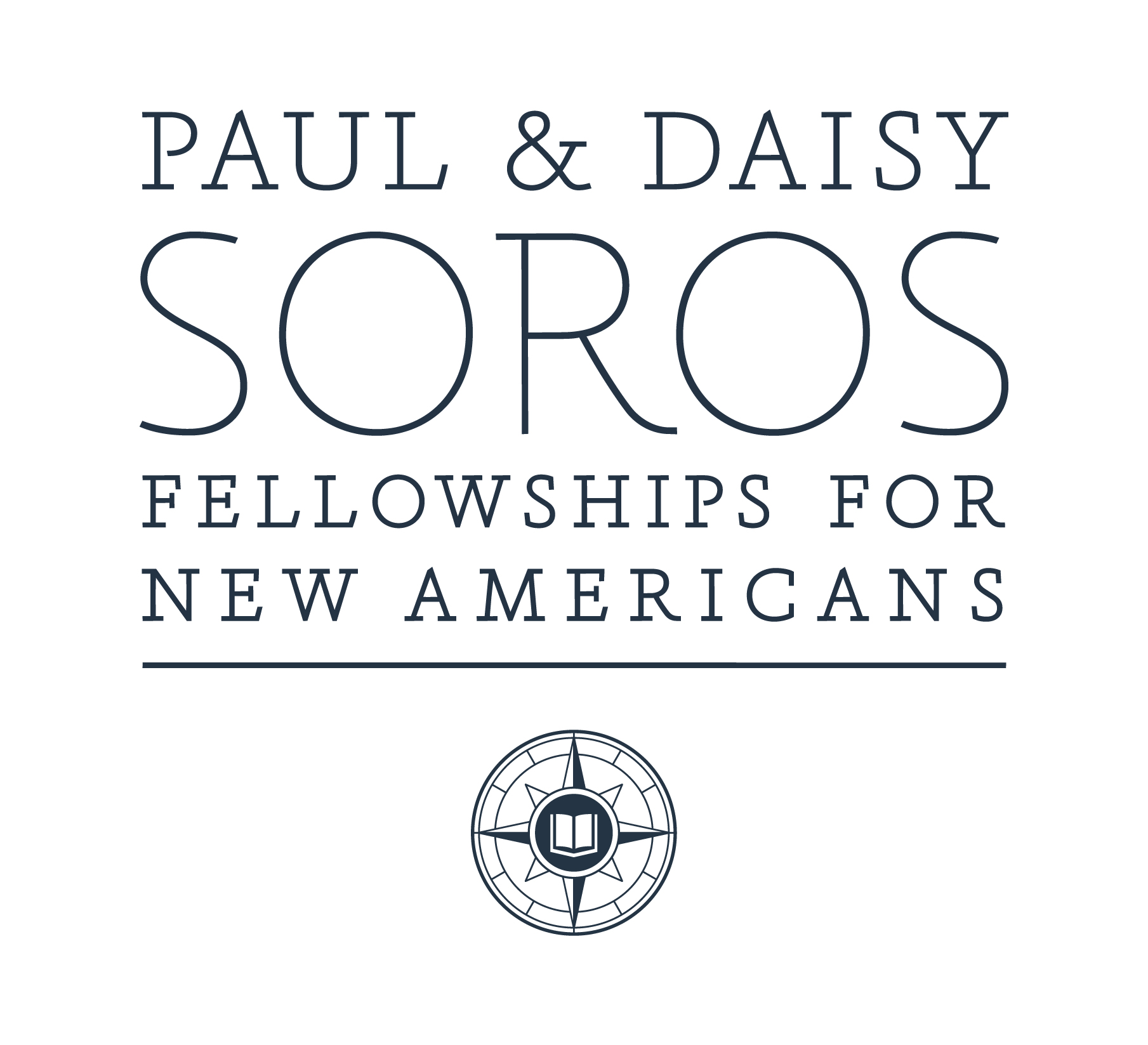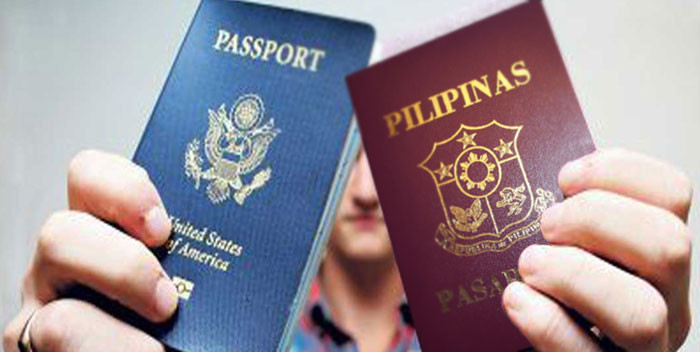Paul and Daisy Soros, Hungarian immigrants and American philanthropists, established their fellowship program for New Americans in December 1997 with a charitable trust of fifty million dollars. Their reasons for doing so were several. They wished to "give back" to the country that had afforded them and their children such great opportunities and felt a fellowship program was an appropriate vehicle. They also felt that assisting young New Americans at critical points in their educations was an unmet need. Finally, they wished to call attention of all Americans to the extensive and diverse contributions of New Americans to the quality of life in this country. In 2010, Mr. and Mrs. Soros contributed an additional $25 million to the charitable trust that funds their Fellowships for New Americans. For details, see the Wall Street Journal article at the end of this section.
The program of fellowships they shaped has the following characteristics:
It honors and supports the graduate educations of 30 New Americans – permanent residents or naturalized citizens if born abroad; otherwise children of naturalized citizen parents -- each year.
At the time of their selection, fellows must be college seniors or early in the graduate programs for which they request support.
Each fellow receives tuition and living expenses that can total as much as $90,000 over two academic years.
Fellows can study in any degree-granting program in any field at any university in the United States.
Fellows are selected on the basis of merit – the specific criteria emphasize creativity, originality, initiative and sustained accomplishment -- in annual national competitions. Candidates apply directly. The program does not depend on recommendations from universities or regional screening. Neither financial need nor distributive considerations are taken into account in the selection process.
Each fellows attends two weekend conferences of fellows. The great majority continue to be involved with the program through regional dinners, service in the selection process for later classes, etc.
The snippet above comes from the Paul and Daisy Soros Fellowship website. We reached out to Jassmin Antolin Payaon, a recipient of the fellowship award from the Philippines, to come to know of her drive, background and the challenges she faced leading up to her involvement with the fellowship.
Jassmin Antolin Poyaoan Paul and Daisy Soros Fellowship Award to support work toward a JD
Jassmin comes from a line of resilient women. Her grandmother left school to support her family, raising herself from a domestic worker to a small business owner. Her mother emigrated from the Philippines to become a nurse in California and worked tirelessly to support the family.
When Jassmin was almost twelve, her mother died, and her father could not cope. Jassmin and her sister were sent to the Philippines to live with their grandmother. In the Philippines, Jassmin observed that even the brightest girls were forced by economic necessity to downscale their dreams. Determined not to compromise, she returned to America at age seventeen, taking legal custody of her sister and responsibility for their sick grandmother.
Jassmin attended Chabot College and then the University of California-Berkeley, where she studied sociology. As part of Oxfam's ActionCorps, she lobbied the US government for climate change policy after typhoon Ketsana devastated Manila. At home, Jassmin built capacity for immigrant-owned small businesses and served with JusticeCorps assisting low-income, self-represented litigants.
Jassmin attends the UCLA School of Law, where she is part of the programs in Public Interest Law and Policy and Critical Race Studies. She will use her JD to help underserved communities rise above systemic poverty.
1. Where and what do you see yourself doing in the next 5 years?
I see myself working for a nonprofit law center providing free legal services to individuals, groups and nonprofits to build and grow wealth in low-income communities of color through community-owned enterprises.
2. What has been your greatest struggle/challenge and how did you overcome it?
The greatest challenge in my life is navigating and dealing with the inter-generational trauma in my family. Poverty both in the U.S. and in the Philippines, untimely deaths and addiction have challenged my family's stability. I have faced these challenges by refusing to continue the unhealthy cycles and seeking services and solace from the community to heal. Part of healing is learning and understanding my family's history and taking advantage of the privileges that I have despite any hardship I may face.
3. What has been your greatest motivation throughout your life?
My grandmother, mother and younger sister have been my greatest motivation throughout my life. My grandmother and mother both instilled in me the desire and determination to realize my dreams, as they did not have the opportunity to realize their own. Through their example of selflessness and compassion for others, they have also motivated me to not only dream for myself, but to strive to help others realize their dreams, too. After our mother passed away, I vowed to raise and guide my younger sister, which helped me push through any and all hardships we faced. Today, as a sophomore in college who is dedicated to community organizing and advocacy, my sister now motivates me to be a better advocate myself.
4. Who were your mentors?
My speech and debate coach was the closest thing to a mentor for me because of his constant belief in me even when I didn't believe in myself. When my confidence was low and I wanted to quit, he convinced me to compete at a state competition before I made up my mind. I ended up winning a gold medal at the competition and needless to say, I decided not to quit. This was a turning point in my life because it helped me begin the process of overcoming self-doubt and fear of realizing my potential.
5. How did you hear about the fellowship?
In my first year of law school, there was an information session about the fellowship on campus.
6. What made you decide to apply for the fellowship?
I was too intimidated to apply for the fellowship during my first year of law school, which I think is a common reason why people choose not to apply. However, in my second year of law school, I thought I owed it to myself to at least try. It would've been my last opportunity to apply, so I didn't want to be in a position where I could look back and think, "what if?"
7. What was the biggest challenge when it came to deciding to pursue the field you're in?
My father put a lot of pressure on me to enter the workforce right out of undergrad to support the family. Knowing that my grandmother and mother had to forgo their dreams in order to provide for their parents and siblings, I wanted to honor their legacy by pursuing my dream to become a lawyer no matter what. It's been a challenge to balance my dreams and my family's expectations of me, but remembering the women who came before me helps me manage.
8. As you gained more experience, how did your priorities change in life?
My personal, academic and professional experiences have broadened my understanding of structural inequality and its causes. As a result, I have become even more dedicated to assisting marginalized people and communities of color.
9. What’s been your favorite part about your journey in your personal life and in your career?
My favorite part about my journey is the relationships I've made along the way. For me, the most important and lasting aspect of life is the relationships one cultivates and cherishes throughout.
10. Would you recommend the fellowship to anyone else? Why/why not?





